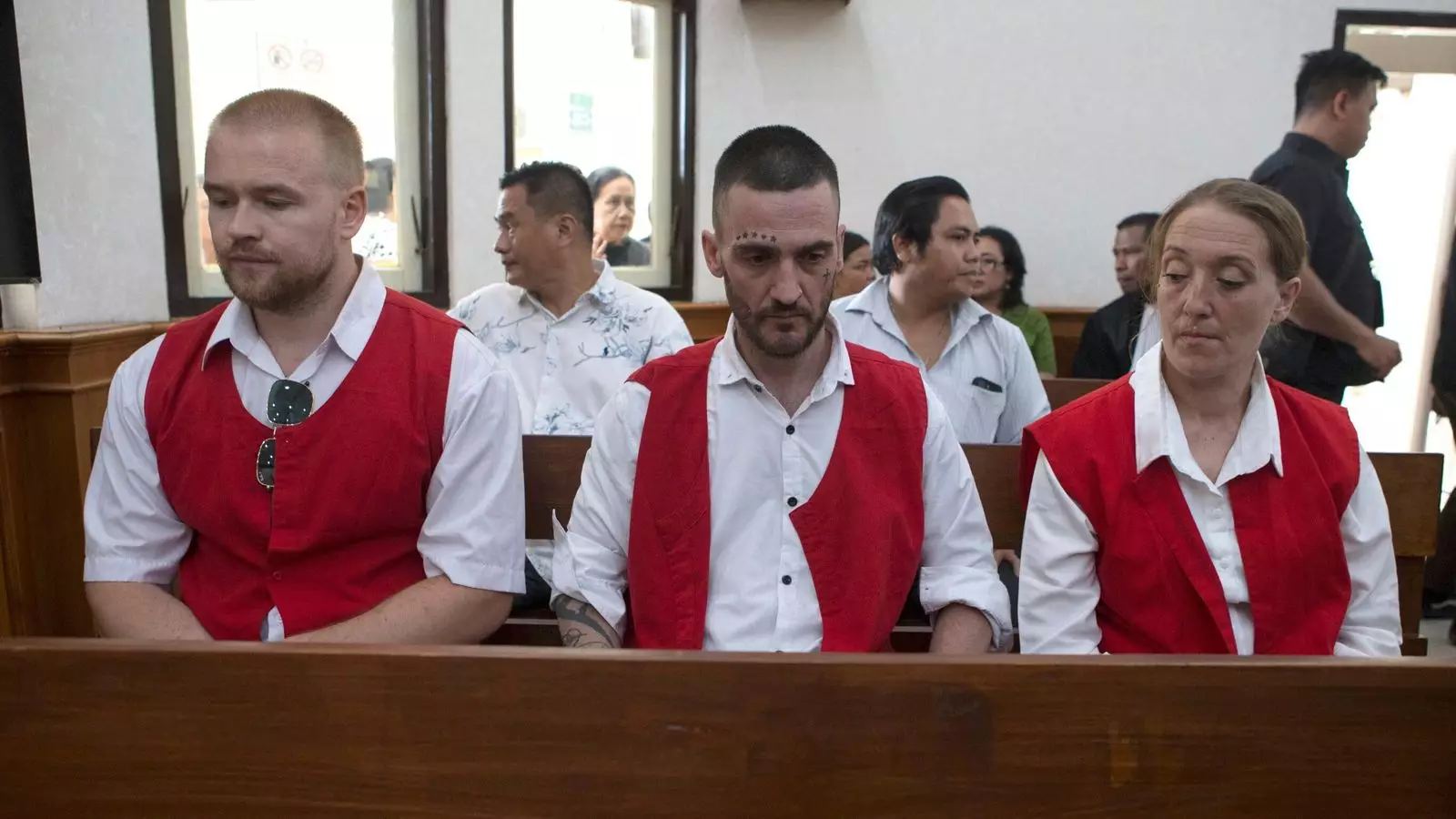Drug smuggling in Indonesia has ignited a storm of debate, especially given the nation’s stringent laws that lead to harsh penalties, including the death penalty. The recent case involving three Britons—Jonathan Christopher Collyer, Lisa Ellen Stocker, and Phineas Ambrose Float—cast a chilling spotlight on the dangerous world of narcotics trafficking and the tragic consequences that ensue. Charged with smuggling nearly a kilogram of cocaine, these individuals are now faced with the possibility of execution, underscoring Indonesia’s unforgiving approach to drug-related crimes. By imposing severe sentences, does the Indonesian government genuinely seek to protect its citizens, or does it reflect a troubling fixation on punitive measures that stretch human rights considerations too far?
A Lucrative Yet Dangerous Trade
Indonesia’s geographical position renders it an attractive nexus for drug trafficking—a perilous crossroads where international syndicates and local pushers converge. The recent arrests highlight a disheartening trend: the attempt to smuggle cocaine into the country that has been executed successfully on two previous occasions. The audacity displayed by these defendants reeks of desperation and miscalculation. In a world where the drugs have infiltrated societies internationally, one cannot help but question the societal and systemic factors driving individuals to risk everything. Does the lure of profit overshadow the potential loss, or are these individuals ensnared in a cycle far beyond their control?
As the prosecution detailed the findings—nearly 994 grams of cocaine disguised within Angel Delight dessert mixes—one can restrict the blame to naive travelers or greedy traffickers. This scenario spirals into a larger discussion about the accountability of pharmaceutical companies, the psychological effects of addiction, and the role of socio-economic disparities. With the sale of illicit drugs, someone ultimately pays the price—usually the most vulnerable of society. As Indonesia prepares to handle these individuals’ fates, it is essential to scrutinize the underlying motivations that led them to such a catastrophic path.
The Death Penalty Dilemma
The practice of executing drug offenders is a polarizing topic, with arguments for and against boiling down to morality and efficacy. Proponents of the death penalty claim that facing such ultimate consequences deters potential offenders—an assertion that remains under vigorous debate. Are we to accept that lives can be extinguished in the quest for deterrence, or do we risk perpetuating a cycle of violence in dealing with addiction? Indeed, more than 530 people, including foreigners, languish on death row for drug-related crimes in Indonesia, forming a staggering reminder of how far the state is willing to go in the name of law and order.
Yet, the question looms larger: is this extreme legal framework genuinely effective in combating drug abuse? Research often points to rehabilitation over punishment as a means of reducing drug-related crime. Countries prioritizing treatment over punishment have reported more significant reductions in drug abuse. The Indonesian government must reckon with this assertion to avoid perpetuating a system that engenders more suffering than it alleviates.
Colliding Realities: The Human Cost of a War on Drugs
Amid the unfolding legal drama, it’s crucial to humanize these defendants beyond the mere labels of “criminal” or “smuggler.” Jonathan, Lisa, and Phineas are not just cases; they embody the desperation prevalent in many individuals entangled in this nightmarish labyrinth of drugs, money, and crime. The pitfall of stigmatizing these individuals deprives society of understanding the psychological and social complexities that lead to their tragic choices. With narratives that justify extreme punitive measures, we risk endorsing a system that strips away human dignity.
Moreover, stories like that of Briton Lindsay Sandiford, who has languished on death row for over a decade, illustrate the chilling permanence of such legal judgments. Is a deterrent worth the heavy toll on individual lives? The discourse surrounding drug trafficking and responses to it in Indonesia deserves a more compassionate lens, one echoing the values of rehabilitation rather than retribution.
In a period where many nations are reassessing their approach to drug policy, Indonesia must grapple with its conscience. The path forward requires a delicate balance of justice and compassion to transition from a culture of punishment to one of understanding—a journey worth embarking on for human dignity.

